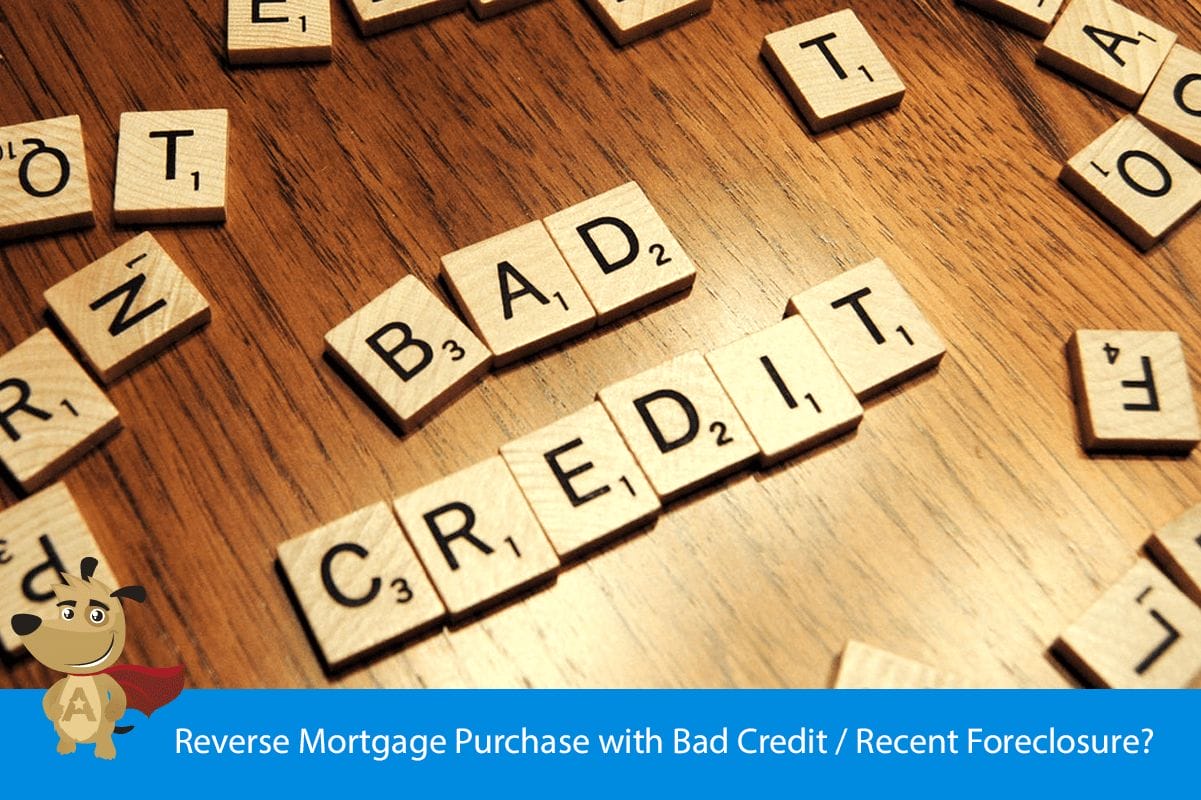Can You Purchase Reverse Mortgage with Bad Credit?
 |
Michael G. Branson, CEO of All Reverse Mortgage, Inc., and moderator of ARLO™, has 45 years of experience in mortgage banking, with the past 20 years devoted exclusively to reverse mortgages. A Forbes Real Estate Council member, he developed the industry's first fixed-rate jumbo reverse mortgage and has been featured in Forbes, Kiplinger, the LA Times, and Yahoo Finance. (License: NMLS# 14040) |
 |
Cliff Auerswald, President of All Reverse Mortgage, Inc., and co-creator of ARLO™ — the industry's first real-time reverse mortgage pricing engine — has 27 years of experience in mortgage banking, with 20+ years focused exclusively on reverse mortgages. A recognized expert in reverse mortgage technology and consumer education, he has been featured in Kiplinger, Yahoo Finance, Realtor.com, and HousingWire. (License: NMLS# 14041) |
Married borrowers #1 has good credit-no blemishes #2 has a bankruptcy with 2 foreclosures 2.5 years ago #1 self employed and #2 employed full time. Combined income about $160,000 per year. #1 owns two properties which he intends to sell and use the proceeds from sales as a down payment for a new home for #1 and #2 to own jointly using a reverse for purchase.
Questions:
1) Can both be on the loan and on title considering #2’s credit issues?
2) Assuming a cash down payment of $150-160,000 what amount can received toward the purchase of a home net of closing costs associated with the loan?
3) Does the amount of cash available depend on fixed rate versus adjustable rate? Are both available with HECM for purchase?
4) How long is the process to close on a purchase?
5) Are there any out of pocket up front costs?

The past credit problems will not currently automatically preclude either borrower from obtaining a reverse mortgage provided that the foreclosures were not on federally-insured loans on which there was a loss (i.e. FHA or VA) and that there is a full 3 years between the foreclosure and the new purchase (not just 2.5). Both would then be on title as well.
You must remember that closing costs are different in different parts of the country. The down payment you mentioned above would be adequate to close on about a $320,000 – $325,000 purchase price on a California property where there are no addition state charges but in Florida, you would have about another $7,000 in closing costs due to the closing costs in that state.
Therefore, you would either must set your sights a little lower or bring in a little more money for the same purchase price.
The amount available does depend on interest rates at the time, programs available and what lenders are charging for the programs.
I always encourage borrowers to compare the costs available and in 6 months (the 3 years as opposed to the 2.5 years since the foreclosure), those costs could be different than they are today.
Reverse mortgages are just like any other loan.
They are securitized and the securities are sold in the secondary market and the pricing available to borrowers is a direct result of the pricing lender receive on the sale of the securities.
The only up-front costs are the counseling (if the counseling is not either free or paid at closing) and the appraisal.
A reverse purchase loan can usually be closed very quickly and most of our purchases close in less than 30 days.
The biggest issue that we run into on purchases is when sellers try to control the title provider and closing agent (and even then it’s usually the seller’s agent driving that decision) and they choose a company with whom they have a relationship but they have never done a reverse mortgage purchase before.
The loans have some very definite rules that are different than forward loans and they are not hard, but you also cannot take them for granted or things can go sideways quickly.
The best insurance to keep this from happening is to make sure that the service providers are experienced in reverse mortgage purchase transactions.
You may also find these posts helpful:



 Michael G. Branson
Michael G. Branson Cliff Auerswald
Cliff Auerswald

Have a Question About Reverse Mortgages?
Over 2000 of your questions answered by ARLO™
Ask your question now!